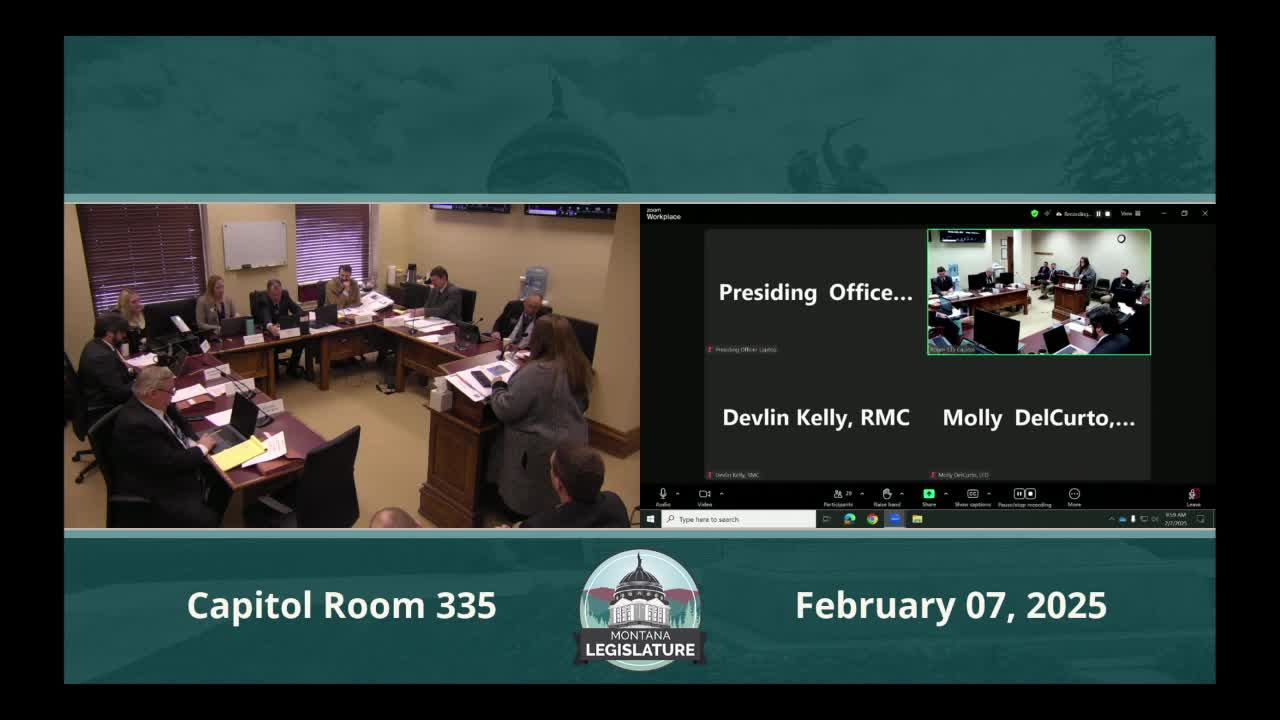Commerce director's office defends indirect-rate increase; lawmakers press for detail on ARPA positions and working capital
Get AI-powered insights, summaries, and transcripts
Subscribe
Summary
Deputy Director Mandy Rambo and department budget staff told lawmakers the director's office indirect rate rose because ARPA-funded modified positions dropped out of the base and the Board of Investments no longer pays the shared-services charge; lawmakers asked for more itemized data and documentation.
Deputy Director Mandy Rambo, Montana Department of Commerce, told the appropriations subcommittee that the director's office shows a planned increase in its indirect rate for the next biennium because prior pandemic-era, modified positions that had temporarily increased the rate base are no longer present and because the Board of Investments will not continue to pay the shared centralized-services charge.
Rambo said the department previously benefited from a larger base of modified personal-services funding (largely ARPA-funded positions in other divisions) that allowed a lower indirect percentage; with those funds winding down and the Board of Investments exiting the rate base, the department must refill its working-capital reserve and adjust the rate to cover the director's office—s costs.
Craig Woods, budget manager at the Department of Commerce, told the committee the dollar increase equates to roughly $450,000 per year spread across the divisions that pay the rate. Committee members pressed the department to explain why working capital fell (reported at about 32 days) and whether added positions from the ARPA period should have been retained.
Senator Ellsworth said he was concerned about the size of the change and asked for more detail on the director's office FTE history. Rambo said the director's office added one attorney position since the pandemic; most ARPA positions were in other divisions and paid into the rate temporarily. Woods said the department ended FY23 with an excess of roughly $400,000 (about 50 days of working capital) and has since fallen to roughly 32 days.
Why it matters: the indirect rate funds centralized services relied on by attached agencies and divisions; rate changes affect many budgets. Committee members asked for a written breakdown of the 21 director's-office positions and a clear accounting of returned or turned-off ARPA positions, and requested an email summary of the ARPA position changes and the working-capital calculations.
Ending: Department staff agreed to provide the committee additional documentation on the 21 director's-office positions, ARPA position history, the calculation of the working-capital days and the detailed drivers of the indirect-rate change.
